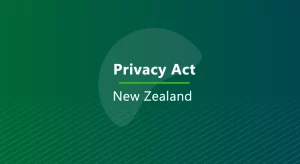
Digital Personal Data Protection Bill Compliance
What Is the Digital Personal Data Protection Bill?
The Digital Personal Data Protection Bill is a law that aims to protect the personal data of individuals in India. It establishes regulations for the collection, processing, and use of personal data by organizations.
The bill seeks to establish a data protection authority that will oversee and enforce the law’s provisions, ensuring that individuals’ personal information is not misused or mishandled by businesses or other organizations.
The law requires companies to obtain explicit consent from individuals before collecting data and gives individuals the right to access, correct, and delete their data. It also imposes strict penalties on businesses that violate the law.
The Definition of Sensitive Data
The Digital Personal Data Protection Bill defines personal data as any data relating to an individual who is either identified or identifiable. This includes the following information:
- Name, address, email address, phone number
- Biometric data, such as fingerprints or facial recognition data
- Financial information, such as bank account or credit card details
- Medical and health-related data
- Education and employment-related data
- Any other information that can be used to identify a person
Who Must Comply with the Digital Personal Data Protection Bill?
The Digital Personal Data Protection Bill applies to any organization that collects, processes, or uses personal data in India, whether it is located within or outside India. This includes companies, government institutions, and individuals who process personal data in the course of their activities.
The law applies to data controllers (entities that determine the purposes and means of processing personal data) and data processors (entities that process personal data on behalf of the data controller).
Comparison of the Digital Personal Data Protection Bill with Other Security Standards
The Digital Personal Data Protection Bill shares some similarities with the GDPR and the CCPA, but it also has some differences:
Similarities:
- Like the GDPR and the CCPA, the Digital Personal Data Protection Bill requires entities to obtain consent from individuals before collecting their data.
- The bill also grants individuals certain rights, such as the right to access, correct, and erase data.
- All standards impose penalties for non-compliance and provide individuals with the right to seek compensation for damages resulting from any breach.
Differences:
- The Digital Personal Data Protection Bill includes provisions that require certain types of personal data to be stored only in India, which is not a requirement under the GDPR or the CCPA.
- The bill also contains provisions related to the processing of non-personal data, which is not covered by the GDPR or the CCPA.
- The GDPR and the CCPA apply to entities that collect personal data of EU residents and California residents, respectively, whereas the Digital Personal Data Protection Bill applies to all personal data collected within India, regardless of the residency or nationality of the individual.
DataSunrise Solutions for the Digital Personal Data Protection Bill Compliance
DataSunrise helps you control, automate and administrate the Digital Personal Data Protection Bill with the Database Regulatory Compliance tool. DataSunrise is a data protection software that helps you to stay in compliance with various data protection acts and laws such as SOX, HIPAA, PCI DSS, and others. DataSunrise offers comprehensive data security solutions to identify personal information and access sensitive data, ensure ongoing monitoring and compliance reporting, enforce data retention policies, provide audit trails, and stay up-to-date with regulations for both SQL and NoSQL databases. By implementing these measures, businesses can protect customers’ privacy and avoid penalties for non-compliance.
